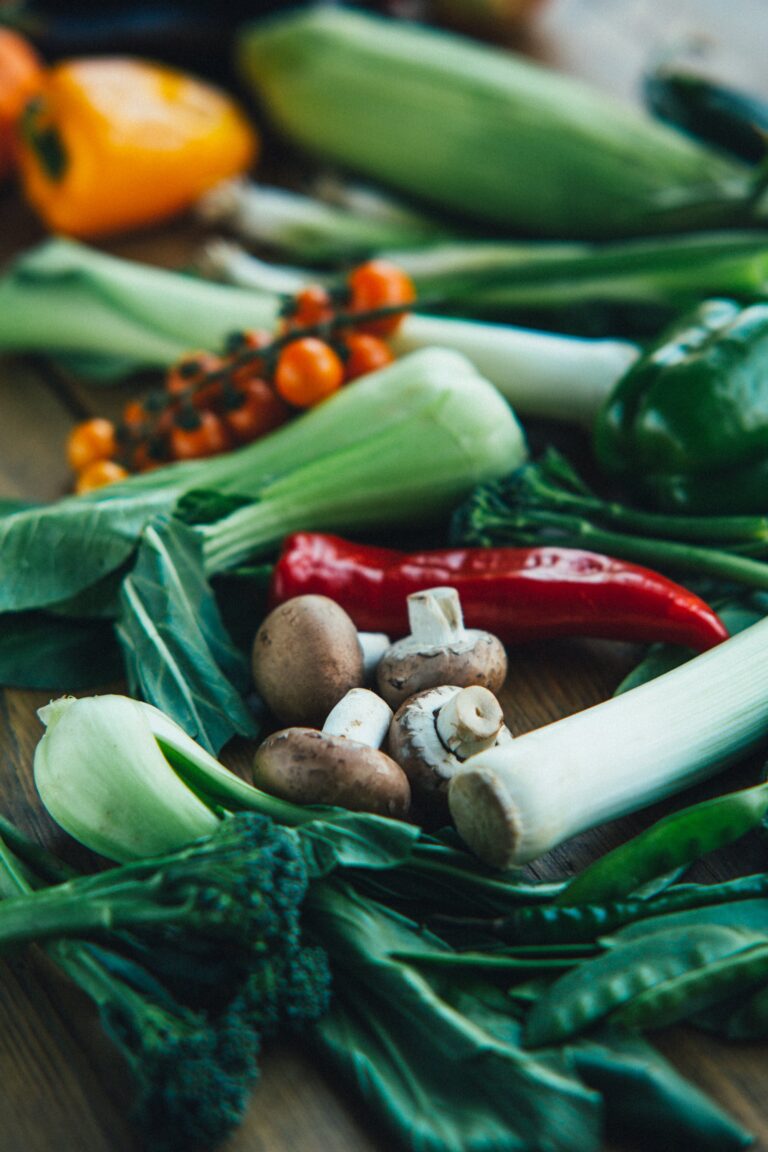
Carrots, the vibrant and crunchy root veggie, have long been a staple in diets around the world, not just for their ability to add flavor and texture to a variety of dishes, but also for their remarkable health benefits. Medically reviewed studies and nutritionists alike have highlighted carrots as a powerhouse of nutrients, offering a plethora of health advantages from boosting the immune system to reducing the risk of chronic diseases.
What Are Carrots
Carrots are a root vegetable known for their vibrant orange color, though they also come in purple, black, red, white, and yellow varieties. They are crunchy when raw and have a sweet, earthy flavor. Carrots are highly nutritious, rich in beta carotene, fiber, vitamins, and antioxidants. They are widely consumed across the globe, either raw, cooked, or as juice, and are celebrated for their health benefits, including improving eye health, reducing cholesterol levels, and supporting the immune system.
Are Carrots Good for You
Yes, carrots are exceptionally good for you. They are a rich source of beta carotene, which the body converts into vitamin A, essential for eye health, immune function, and skin health. Carrots are also high in fiber, which aids digestion and weight management, and contain vitamins C and K, potassium, and antioxidants that support heart health and reduce the risk of chronic diseases. Their low glycemic index makes them suitable for blood sugar regulation, making them a nutritious addition to a healthy diet.

Organic vs Conventionally Grown Carrots
Organic carrots are grown without synthetic pesticides, fertilizers, or genetically modified organisms, adhering to organic farming standards that aim to promote ecological balance and conserve biodiversity.
Conventionally grown carrots, on the other hand, may be cultivated using chemical fertilizers and pesticides to enhance growth and prevent pest damage. Some consumers prefer organic carrots for environmental and health reasons, believing them to be free of potentially harmful chemicals and more sustainable.
Important Note
Both organic and conventionally grown carrots are nutritious and should be washed before eating. The choice between organic and conventional often comes down to personal preference, availability, and budget considerations.

What Are The Health Benefits Of Eating Carrots
Here are the top 10 benefits of incorporating carrots into your diet, underlined by key nutritional components and scientifically backed findings.
Carrots Promote Healthy Vision: Rich in Beta Carotene
Carrots are famously rich in beta carotene, a compound that the body converts into vitamin A, crucial for preventing conditions like night blindness and supporting overall eye health. High beta carotene intake has been linked to a lower risk of age-related macular degeneration, a common cause of vision loss.
Carrots Can Lower Cholesterol Levels
Eating carrots or drinking carrot juice can help lower cholesterol levels, thanks to their high fiber content. Lower cholesterol is directly related to a reduced risk of heart disease. A prospective cohort study has indicated that the soluble fibers in carrots bind with bile acids, helping to reduce cholesterol levels in the blood.
Carrots Help With Blood Pressure Regulation
The potassium in carrots can help regulate blood pressure by counteracting the effects of sodium in the diet. Maintaining a healthy blood pressure is vital for cardiovascular health, making carrots an excellent food for heart disease prevention.
Carrots Can Aid with Weight Loss
Carrots have a low glycemic index, meaning they cause a slower, more gradual rise in blood sugar levels. This, along with their high fiber content, makes them a satisfying snack that can aid in weight loss by keeping you full longer and helping to prevent unnecessary snacking.
Carrots Support Your Immunity
Carrots are a good source of vitamin C and other antioxidants that support the immune system. These nutrients help your body fight off infections and diseases by combating free radicals, molecules that can cause cell damage.
Carrots Support Bone Health
Beyond their rich content of vitamin A, carrots also provide calcium and vitamin K, both essential for bone health and strength. Regular consumption of carrots can contribute to maintaining a healthy skeletal system.
Carrots Lower Risk of Cancer
Carotenoids, found in carrots, are known for their cancer-fighting properties. Studies have suggested that these antioxidants can lower the risk of several types of cancer, including colorectal cancer, by neutralizing harmful free radicals in the body.
Carrots Balance Your Blood Sugar
Despite their natural sweetness, carrots have a low glycemic index, making them an excellent food for managing blood sugar levels. This attribute makes carrots a beneficial part of the diet for people looking to regulate blood sugar.
Carrots Improves Skin Health
The vitamin A and antioxidants in carrots are beneficial for skin health. They can help prevent premature skin aging, reduce acne, and promote a healthy skin glow by repairing skin tissue and protecting the skin from sun damage.
Carrots are Versatile in Diets
The versatility of carrots makes them easy to incorporate into your diet. Whether eaten raw, cooked, as part of home remedies, or juiced, carrots maintain their nutritional content, offering flexibility in how you choose to consume them. Raw carrots, in particular, are a crunchy, nutritious snack, while carrot juice provides a concentrated dose of their health-giving properties.
What Are The Risks Associated With Carrots
While carrots are highly nutritious and beneficial for most people, there are a few risks associated with consuming them in large quantities:
- Carotenemia: Eating excessive amounts of carrots or foods high in beta carotene can lead to carotenemia, a condition where the skin turns slightly orange or yellow. Although not harmful, it can be alarming. The condition is reversible by reducing beta carotene intake.
- Allergic Reactions: Although rare, some individuals may experience allergic reactions to carrots. Symptoms can include itching, swelling, and digestive distress.
- Blood Sugar Management: While carrots have a low glycemic index, they do contain natural sugars. People with diabetes should consume them in moderation to manage blood sugar levels effectively.
- Interference with Medications: High intake of vitamin K found in carrots can affect blood clotting. People on blood thinners should manage their intake of vitamin K-rich foods to prevent interference with medication effectiveness.
- Digestive Issues: For some, consuming large amounts of fiber from carrots can lead to digestive discomfort, such as gas or bloating.
In general, these risks are associated with consuming carrots in excessive amounts. For most people, carrots can be safely enjoyed as part of a balanced diet without adverse effects.

How to Use Carrots
Carrots are incredibly versatile and can be used in a myriad of ways across various cuisines. Here’s how to incorporate them into your diet:
- Raw Snacking: Simply wash, peel (if desired), and slice carrots for a crunchy, nutritious snack. Pair with hummus or dip for added flavor.
- Salads: Grate or chop carrots and add them to salads for a burst of color, texture, and nutrition. Suggested: Carrot Salad Recipe
- Soups and Stews: Carrots add sweetness and body to soups and stews. Dice or slice them and simmer until tender. Suggested: Carrot, Apple and Ginger Soup.
- Roasting: Roasted carrots become sweet and caramelized. Toss with olive oil, salt, and your favorite herbs, then roast until golden. Suggested: Easy Oven Roasted Carrots.
- Juicing: Carrot juice is sweet, nutrient-rich, and can be blended with other fruits and vegetables for a healthy drink.
- Baking: Grated carrots add moisture and sweetness to baked goods like cakes, muffins, and bread. Suggested: Banana Carrot Muffins.
- Stir-Fries: Add sliced or julienne carrots to stir-fries for a quick-cook option that retains some crunch.
- Pickling: Pickled carrots offer a tangy, crunchy addition to salads, sandwiches, and as a garnish. Suggested: Pickled Carrots.
- Steaming: Steamed carrots maintain much of their nutritional value and can be seasoned with herbs and butter for a simple side dish.
- Glazing: Glazed carrots are cooked with a mixture of butter, sugar, and spices, resulting in a sweet and savory side dish. Suggested: Brown Sugar Glazed Carrots.
- As a Noodle Replacement: Spiralized or shaved carrots can serve as a low-carb, nutrient-dense alternative to noodles in pasta dishes.
Incorporating carrots into your diet not only adds a nutritional boost but also brings a variety of flavors and textures to your meals, making them a valuable ingredient in both sweet and savory dishes.
How to Store Carrots
Tips for Preparing Carrots
Preparing carrots is easy and can enhance their flavor and nutritional value. Here are some tips to get the most out of your carrots:
- Washing: Always wash carrots thoroughly under running water to remove any dirt or pesticides. A vegetable brush can be helpful for scrubbing the skin.
- Peeling: Peeling is optional and based on personal preference or recipe requirements. The skin of carrots is edible and contains nutrients, but peeling can remove any bitterness and improve texture for certain dishes.
- Cutting: Depending on the recipe, you can slice, dice, julienne, grate, or spiralize carrots. For even cooking, try to cut them into uniform pieces.
- Preserving Color: To maintain the bright orange color of carrots when cooking, add a pinch of sugar to the water. This helps to enhance their natural sweetness and color.
- Blanching: If you’re adding carrots to a salad or freezing them, blanching (briefly boiling and then plunging into ice water) can brighten their color and soften them slightly while retaining crunch.
- Roasting: For a sweeter, more concentrated carrot flavor, roast them. Toss with olive oil, salt, and your preferred seasonings, then roast at a high temperature until tender and caramelized.
- Steaming: Steaming carrots preserves most of their nutrients and natural flavor. It’s a quick and healthy cooking method, especially good for baby food or a light side dish.
- Boiling: To boil carrots, start them in cold water and bring to a boil. This method is quick and suitable for mashing or pureeing.
- Storing Cut Carrots: If you’ve cut more carrots than you need, store them in water in the refrigerator to keep them fresh and crisp.
- Enhancing Flavor: Carrots’ natural sweetness pairs well with a variety of flavors, including honey, ginger, thyme, cinnamon, and orange. Experiment with these combinations in your dishes.
- Using Tops: If your carrots come with tops, don’t throw them away! Carrot tops can be used in pesto, salads, or as a garnish, adding a unique flavor and reducing waste.
By following these tips, you can maximize the taste, texture, and nutritional benefits of carrots in your cooking and baking endeavors.

Final Thoughts
Incorporating carrots into your diet is not only a taste treat but a boon to your overall health. From supporting eye health to contributing to cancer prevention, the benefits of carrots are vast. Their nutritional profile, including fiber, beta carotene, vitamins, and carotenoids, positions them as a top food for maintaining a healthy, balanced diet. Whether you’re looking for foods that support weight loss, help regulate blood pressure, or lower cholesterol levels, carrots are a nutritious and delicious choice that can contribute to your well-being in numerous ways.

Christopher is a food and lifestyle expert, recipe developer and the content creator behind May Eighty Five. With years of experience in the kitchen, he also shares tips, tricks and how to’s that he has learnt over the years. Every week, he shares quick, simple and mostly healthy recipes along with some home and entertaining tips. You will find flavorful cocktails, delicious appetizers, tasty mains and some indulgent desserts. As a home decor enthusiast, he also likes to share simple DIY projects and simple tips for a beautiful home.







